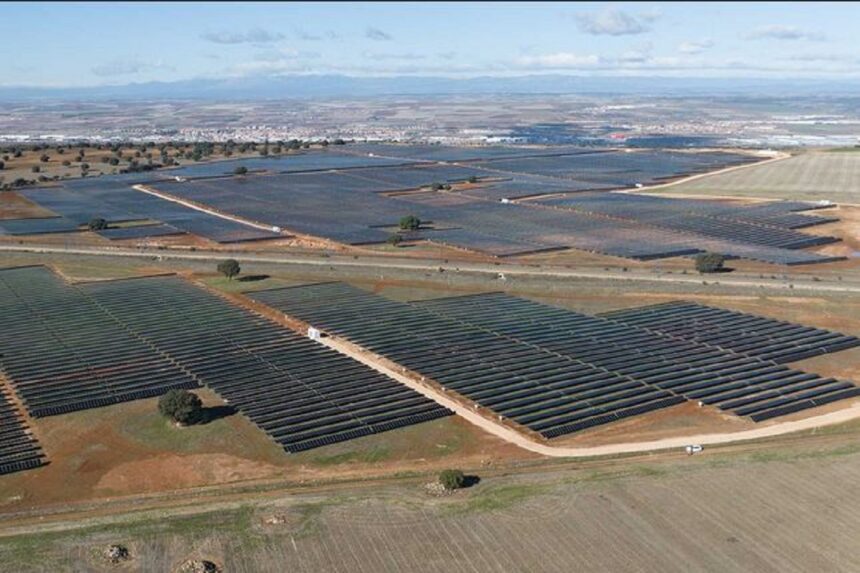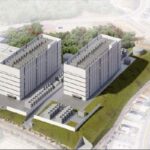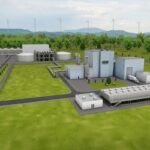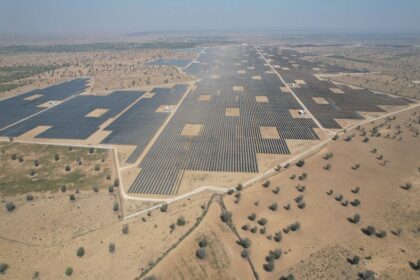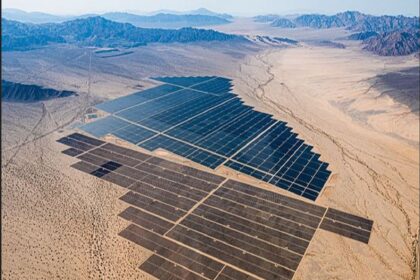Edisun Power, a European solar power producer, has announced plans to supply electricity from its 941MW Fuencarral solar plant in Madrid to local data centers. With the growing demand for artificial intelligence (AI) and the increasing regulatory pressure for data centers to reduce emissions, this initiative aims to meet the energy needs of the region’s fast-growing tech industry.
Understanding Edisun Power’s Strategic Move in the Data Center Sector
Edisun Power is setting its sights on the burgeoning data center market in Madrid, aligning with the growing need for sustainable, renewable energy sources. As AI technologies and data processing requirements continue to surge, so does the demand for reliable, low-emission energy. Edisun’s decision to target data centers stems from these increasing needs, as well as the European Union’s more stringent regulations on carbon emissions from data centers.
The Fuencarral solar farm, still under development, will consist of three main projects: Pradillos (390MW), Fuencarral (291MW), and Loeches (260MW). These plants are designed to ensure sufficient open space between each facility, optimizing efficiency and scalability.
Key Projects within the Fuencarral Solar Plant
The Fuencarral solar plant is divided into three primary projects, each at different stages of development:
- Pradillos Project: A 390MW solar installation still awaiting final building licenses.
- Fuencarral Project: The main 291MW facility nearing completion of construction approval.
- Loeches Project: A 260MW project that recently received its final construction authorization.
Edisun has laid out a clear plan for these facilities to begin supplying electricity to local data centers, as they finalize construction and grid connections.
The Growing Role of AI in Data Center Energy Demand
The rapid expansion of artificial intelligence technologies is placing increased pressure on data centers, particularly in terms of energy consumption. AI systems require vast amounts of computing power, which in turn demands a reliable and sustainable energy supply. Edisun’s decision to redirect power from its solar plants to data centers is a response to this challenge, with a focus on meeting both the environmental and operational needs of these facilities.
As AI-driven applications, such as machine learning and data analytics, become more integral to businesses, data centers will increasingly need to rely on energy sources that support low-emission operations. This shift is in alignment with the European Union’s regulatory push for data centers to minimize their carbon footprint.
Edisun’s Efforts to Secure Funding and Investment
In order to bring the Fuencarral solar plant online, Edisun has launched a process to attract infrastructure funds, private equity, and data center owners and operators. The company is currently in talks with a consortium of banks to secure financing for the project’s construction. If Edisun is unable to obtain the necessary funding, Smartenergy, the plant’s original owner, has an agreement in place to repurchase the facility.
Additionally, Edisun is exploring opportunities to acquire Special Purpose Vehicles (SPVs) from Smartenergy. These acquisitions would facilitate further energy supply to data centers and help secure the necessary grid connections for additional energy purchases. In exchange, Edisun is divesting its 159MW Italian project portfolio to Smartenergy.
Madrid’s Growing Data Center Market
Madrid is one of Spain’s most important hubs for data center activity, accounting for over 60% of the country’s total data center capacity in 2023. The city hosts a significant number of operational data centers, with 18 facilities operated by 16 different providers. Major industry players like Equinix and Global Switch are part of this dynamic ecosystem, supporting the region’s technological growth.
In recent months, the Madrid data center market has witnessed several notable developments. In October 2024, UAE-based data center provider Edgnex announced plans to build a 40MW facility in the Vicalvaro region, with an expected operational start date in 2026. Similarly, US-based Prime has outlined plans for a 40MW data center in Madrid, scheduled for completion by Q1 2025.
A Sustainable Energy Future for Madrid’s Data Centers
Edisun’s investment in the Fuencarral solar plant represents a significant step toward securing a renewable energy future for Madrid’s data centers. By directing solar power to meet the rising energy demands of the region’s data-driven economy, Edisun is positioning itself as a key player in the transition to low-emission operations for the data center industry.
The energy-intensive nature of data centers, particularly those supporting AI, requires sustainable solutions to minimize environmental impact. Edisun’s solar power initiative aligns perfectly with the growing trend of adopting green energy to meet both operational and regulatory demands, helping to shape the future of the industry.
FAQ
What is the Fuencarral solar plant, and how will it support data centers?
The Fuencarral solar plant is a large-scale solar energy project under development in Madrid, designed to provide renewable energy to local data centers. It comprises three projects: Pradillos, Fuencarral, and Loeches, totaling 941MW.
Why is there a growing demand for energy in AI-driven data centers?
AI technologies, such as machine learning and large-scale data analytics, require vast amounts of computing power, which drives up the energy demands of data centers. To meet this challenge, data centers need a consistent and sustainable energy supply.
How is Edisun securing investment for the Fuencarral solar project?
Edisun is actively seeking funding from infrastructure funds, private equity firms, and data center operators. It is also negotiating with banks for financing and has a contingency plan in place with Smartenergy if funding cannot be secured.
What role does Madrid play in Europe’s data center market?
Madrid is one of the largest data center hubs in Spain, accounting for over 60% of the country’s data center capacity. The city continues to see significant investment and expansion in the sector.
How do renewable energy sources impact data center operations?
Renewable energy sources, like solar power, help data centers meet increasing energy demands while adhering to stricter environmental regulations. By using sustainable power, data centers reduce their carbon footprint and support global efforts to combat climate change.



